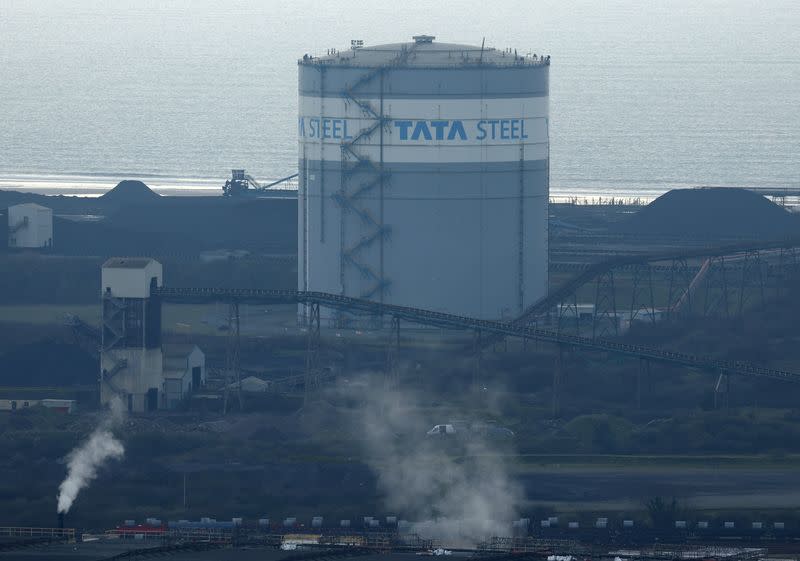Tata Steel workers in UK suspend strike action in favour of talks

LONDON (Reuters) -Tata Steel workers in Britain suspended a planned all-out strike and overtime ban on Monday, following a warning from the company that it would bring forward the planned closure of its two blast furnaces in the country if the walkouts went ahead.
Workers at the Port Talbot and Llanwern sites in Wales, represented by the Unite union, are locked in a dispute with India-owned Tata Steel over its decision to close the blast furnaces and cut up to 2,800 jobs.
Around 1,500 workers at the sites, who had already begun an overtime ban on June 17, were also due to start an indefinite strike from July 8.
But the union said it had paused industrial action after confirmation from the company that it was prepared to enter talks about "future investment for its operations and not just redundancies".
"This is a significant development in the battle to protect jobs and the long-term future of steel making in South Wales," Unite General Secretary Sharon Graham said.
"It is essential that these talks progress swiftly and in good faith with the focus on fresh investment and ensuring the long-term continuation of steel making in South Wales."
A spokesperson for the company, which had also threatened legal action challenging the validity of Unite's strike ballot, welcomed the union's move to suspend strikes.
"Given we can now be confident of ensuring appropriate resourcing of activities to operate safely, we will halt preparations for the early cessation of operations on Blast Furnace 4 and the wider heavy end in Port Talbot," they said.
The resumption of talks will "focus on the future investments and aspirations for the business, and not on a renegotiation of our existing plan for the heavy-end closure or the enhanced employment support terms", the spokesperson added.
The company, which employs over 8,000 people in Britain, has previously said that its steelmaking assets were near the end of their life, operationally unstable and causing unsustainable losses of 1 million pounds ($1.26 million) a day.
($1 = 0.7915 pounds)
(Reporting by William James and Muvija M, Editing by Kylie MacLellan and Sharon Singleton)


